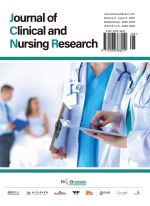Impact of MBTI on Teaching Effectiveness in Internal Medicine Nursing: Teaching Performance, Teaching Quality, and Occupational Identity
Abstract
Introduction: This study examined the application of targeted education strategies for nursing students of different MBTI types to enhance students’ theoretical and practical grades. Nursing students have different personalities, therefore learning behaviors are significantly different. It is worth exploring whether teaching methods influence these differences and can be improved through specific education strategies. Methods: Experimental research methods and Questionnaire survey methods were used to test the effect of MBTI with different personality types on the implementation of targeted education strategies. Results: There was a significant correlation between MBTI and teaching effect (p < 0.005). Targeted changes in education strategies could effectively improve teaching effect (p < 0.005), improve teaching quality (p < 0.005), and improve nursing students’ professional identity (p < 0.005). Conclusion: The results showed that targeted changes in education strategies can effectively improve teaching effectiveness, teaching quality, and nursing students’ sense of occupational identity.
References
Wang J, Xu R, 2024, A Study of Personality Factors in Chemistry Learning Among High School and College Students From the Perspective of MBTI. Teaching and Management, 12: 59–62.
Rushton S, Morgan J, Richard M, 2007, Teacher’s Myers-Briggs Personality Profiles: Identifying Effective Teacher Personality Traits. Teaching and Teacher Education, 23(4): 432–441.
Li X, 2020, Discussion on Personalized Training Measures for Medical Students’ Doctor–Patient Communication Skills Based on MBTI. Educational Theory and Practice, 40(21): 45–47.
Lalloo D, Demou E, Pahl N, Macdonald EB, 2019, Research and Teaching Activity in UK Occupational Physicians. Occupational Medicine, 70(1): 64–67.
Ahmed AM, Blankenship J, 2019, Sustainable Individualized Instruction of Biochemistry: A Framework for Recruiting, Training, and Utilizing Undergraduate Teaching Assistants. Biochemistry and Molecular Biology Education, 47(5): 560–564.
Briggs MI, Kirby LK, Myers KD, 2011, Introduction to Type: A Guide to Understanding Your Results on the MBTI Instrument. CPP Asia Pacific Pty Ltd, Australia.
Zhao P, Lei Y, Duan Z, 2021, Application of Interprofessional Collaborative Simulation Teaching in the Laboratory Teaching of Internal Medicine Nursing. Journal of Nursing Advancement, 36(18): 1633–1637,1644.
Chamorro-Premuzic T, Furnham A, 2003, Personality Predicts Academic Performance: Evidence From Two Longitudinal University Samples. Journal of Research in Personality, 37(4): 319–338.
Li X, 2017, The Influence of Human Factors on Programming Performance: Personality, Programming Styles and Programming Attitudes, thesis, Auburn University.
Gao LL, Chan SWC, Cheng BS, 2011, The Past, Present and Future of Nursing Education in the People’s Republic of China: A Discussion Paper. Journal of Advanced Nursing, 68(6): 1429–1438.
Tian B, 2013, An Investigative Study of Personality Traits, Chemistry Learning Self-Efficacy and Chemistry Test Anxiety Among Secondary School Students, thesis, Yunnan Normal University.
Kim MJ, Park KP, Seo DG, Ihm JJ, 2014, The Relationship Between Dental Graduate Students’ MBTI Types and Academic Achievement in Problem-Based Learning. Korean Journal of Medical Education, 26(4): 291–297.
Li X, Sardinas R, Po-Chou S, et al., 2018, Influence of Introversion and Extraversion Using MBTI Personality Model on Academic Performance. International Journal of Information and Education Technology, 8(9): 644–648.
Jones JCG, 1979, Dental Student Selection—The Prediction of Success. Journal of Dentistry, 7(4): 329–338.
Qiu SL, Liu H, Shang J, 2022, Analysis of the Application Effect of the Improved Morning Report Method in the Teaching of Clinical Thinking Skills in Traditional Chinese Medicine Internal Medicine. Beijing Traditional Chinese Medicine, 41(5): 582–584.
Lujan HL, DiCarlo SE, 2017, A Personal Connection: Promoting Positive Attitudes Towards Teaching and Learning. Anatomical Sciences Education, 10(5): 503–507.
Oanh TTH, Thuy LT, Huyen NTT, 2024, The Effect of Simulation-Based Training on Problem-Solving Skills, Critical Thinking Skills, and Self-Efficacy Among Nursing Students in Vietnam: A Before-and-After Study. Journal of Educational Evaluation for Health Professions, 21: 24.


